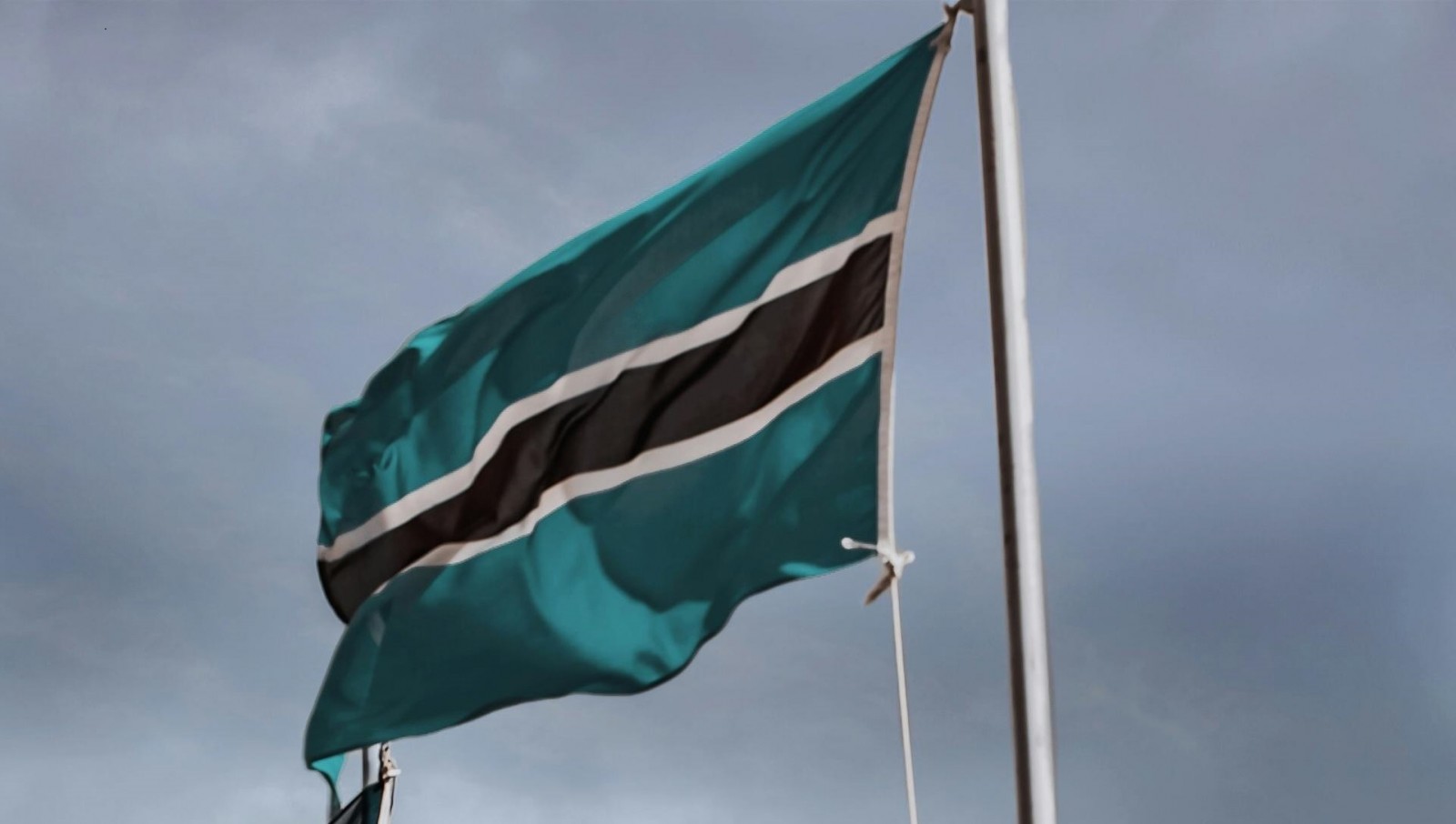Botswana is a landlocked country located in Southern Africa. Here are some key points about Botswana
- 5 Nov, 2023
- 4544 views
Botswana is a landlocked country located in Southern Africa. It is bordered by several countries: Namibia to the west and northwest, Zambia to the north, Zimbabwe to the northeast, and South Africa to the south and southeast. Botswana is known for its diverse landscapes, including the Kalahari Desert in the southwest, the Okavango Delta in the northwest, and various wildlife-rich areas that attract tourists interested in safaris and nature exploration. Gaborone is the capital and largest city in Botswana. The country gained independence from British rule in 1966 and has since maintained a stable democratic government.
1. Capital: Gaborone
2. Population: Around 2.4 million people (as of my last update in January 2022).
3. Government: Botswana is a parliamentary republic with a multi-party political system.
4. Economy: Historically, Botswana's economy has been driven by diamond mining. It's one of the world's largest diamond producers. However, the country has been working to diversify its economy, focusing on sectors such as tourism, agriculture, and services.
5. Wildlife and Nature: Botswana is known for its diverse and rich ecosystems, including the famous Okavango Delta, which is one of the largest inland deltas in the world and a UNESCO World Heritage Site. It's home to a wide variety of wildlife, including elephants, lions, hippos, and many species of birds.
6. Stable Democracy: It has a stable political environment and has been seen as a relatively peaceful and politically stable country in the African continent.
7. Culture: Botswana's culture is influenced by various ethnic groups such as the Tswana people, Kalanga, Bushmen, and others. The country celebrates a range of traditional festivals and has a rich heritage of music, dance, and crafts.
Botswana has made significant progress in various socio-economic aspects, including health and education, and has managed to maintain a relatively stable and peaceful society.
In January 2022, Botswana's government implemented a scheme to financially support students in tertiary education:
Through the Tertiary Education Financing Policy (TEFOP), eligible students could receive allowances or loans to cover their tuition fees, living expenses, and other educational costs. The specifics of the support varied based on the students' financial needs, academic performance, and the institutions they attended.
Healthcare policies in the country:
Botswana provides free healthcare to its citizens through the public healthcare system. The government has made efforts to ensure that its citizens have access to basic healthcare services without direct charges at the point of service. This includes various medical treatments, consultations, and medications provided at government-run health facilities.
However, it's essential to note that while basic healthcare is intended to be free, there might be some limitations or circumstances where certain services or treatments could require some form of payment or additional charges. For example, specialized treatments, certain medications, or procedures not covered by the public healthcare system might come with additional costs. Additionally, the quality and availability of healthcare services may vary in different regions of the country.
Botswana's healthcare system aims to provide free or subsidized healthcare services to its citizens, but the specifics and coverage can vary.
Botswana is a rich country:
Botswana, relative to many other African nations, has experienced significant economic growth and stability due to its diamond mining industry and prudent governance. The country has made substantial progress in various developmental aspects, such as infrastructure, education, and healthcare. However, while Botswana has valuable natural resources, it faces challenges such as income inequality, high HIV prevalence, and unemployment, which affect segments of its population. The classification of Botswana as a "rich" country can vary depending on the criteria used for evaluation. It's considered upper-middle-income but not typically classified as one of the world's wealthiest nations.
Botswana's citizens get FREE land if they apply when they are above 18:
Botswana does not have a policy that provides free land to its citizens upon reaching the age of 18. However, Botswana has a system of land allocation that includes customary land tenure, leasehold, and freehold.
Traditionally, there are tribal land allocations in Botswana which may have different rules and processes for land distribution within certain communities or tribes, but these arrangements aren't universal throughout the country. Land tenure in Botswana is quite complex, involving both state-owned land and tribal land, and it doesn't typically involve an automatic, blanket-free land distribution to citizens upon reaching adulthood.
In 2017, Botswana's Parliament approved a law to provide FREE sanitary pads for girls in all schools to improve access to EDUCATION:
Botswana's Parliament had indeed passed a motion in 2017 aimed at providing free sanitary pads to girls in schools. The initiative was introduced to address the issue of menstrual hygiene management and to ensure that girls had access to necessary sanitary products, thereby reducing absenteeism from school due to lack of access to menstrual hygiene resources.
The provision of free sanitary pads was a significant step toward promoting girls' education by removing one of the barriers that could prevent them from attending school regularly. This initiative aimed to support young girls in continuing their education without being hindered by the unavailability or unaffordability of menstrual hygiene products.
Botswana gives Grants to OLD people and PHYSICALLY challenged people:
Botswana, like many countries, has social welfare programs in place to support vulnerable and disadvantaged populations, including elderly and physically challenged individuals. These programs often include grants, allowances, and other forms of financial assistance to help improve the well-being and quality of life for these individuals.
Botswana is a good country to live in.
Botswana is often regarded as a stable and relatively prosperous country in Africa. It has enjoyed consistent economic growth, and a stable political environment, and has made significant progress in various sectors including education and healthcare. The country is known for its commitment to democracy, good governance, and the prudent management of its natural resources, particularly its diamond industry.
Botswana has made strides in reducing poverty and improving infrastructure. It also boasts stunning natural landscapes, such as the Okavango Delta and Chobe National Park, making it a popular destination for ecotourism and wildlife enthusiasts.
Botswana is a good country to live in.
However, like any country, there are aspects that some may find challenging. Issues such as income inequality, and limited employment opportunities in certain sectors can pose challenges for some of its citizens. Additionally, access to certain resources and services might vary in different regions of the country.
Overall, the perception of whether Botswana is a good country to live in can differ from person to person based on individual circumstances, preferences, and needs. Some might find it very comfortable and accommodating, while others may face challenges or have different opinions based on their experiences and expectations.
The crime rate in Botswana.
Botswana had a relatively moderate crime rate compared to some other countries in the region. However, crime rates can vary depending on the specific area within the country.
In urban areas, particularly in cities like Gaborone, crimes such as theft, burglary, and robbery can occur. Petty crimes like pickpocketing may also be reported in crowded places or tourist areas.
Crime rates, of course, are subject to change over time and can be affected by various factors such as socioeconomic conditions, law enforcement measures, and government policies.
- Category:
- Arts & Culture
- Oganisation:
- +34 631 27 98 11
- Writer:
- Clevenard
- Phone:
- Clevenard Social Networking Platform
- No comments



